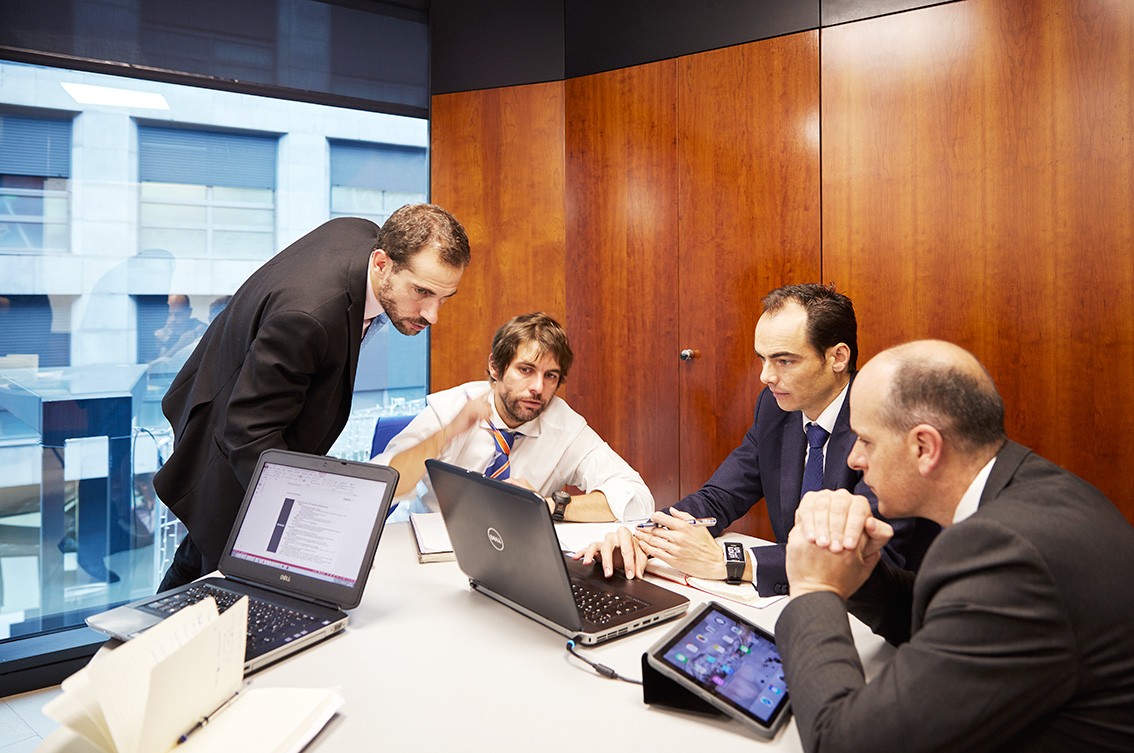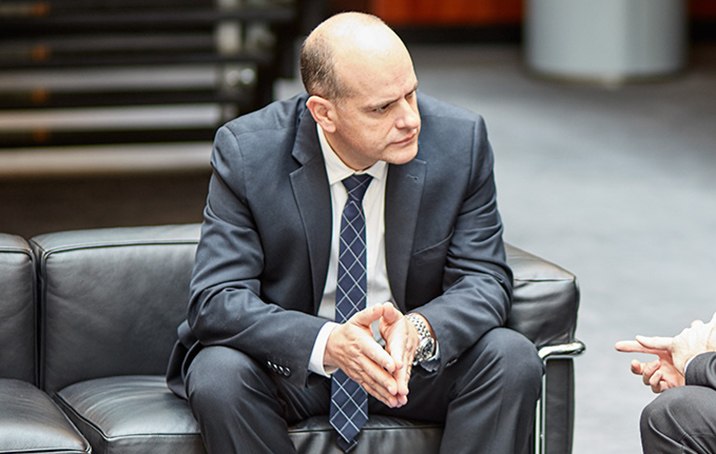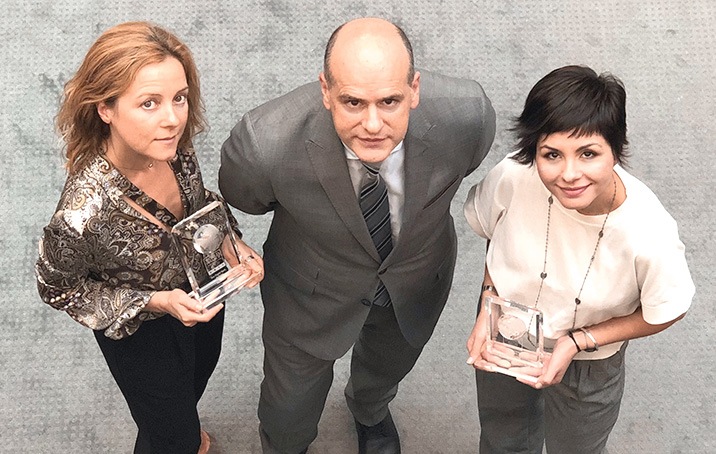
The Digital Banking team: Nathalie Blasi, Ignasi Martín and Jessica Reynoso, holding the prizes awarded by World Finance .
Of all the projects you’ve launched on the market, which ones would you like to especially mention?
It’s been a non-stop two years. We’ve launched new projects or incorporated new features into our online banking system, apps and public website practically every month.
Today we have the highest-valued public website in the Andorran market and an easy and practical online bank that satisfies the needs of a range of cilent profiles (home economics, business and investment profiles).
Our banking apps, designed for the daily management of personal finances and adapted for smartphones with iOs and Android operating systems, now account for 45% of access to our online bank.
Among the most important projects we have incorporated is the investment module, which makes it possible for users to check their stocks and buy and sell shares in major global markets, as well as MoraBanc Group investment funds through an enhanced user experience complete with access to information and interactive graphics. This enhanced value is rounded out by one of the most comprehensive online brokers in the European financial sector, and clients on both our public website and online bank can build virtual investment portfolios and also configure market alerts.
A couple of months ago we also added the direct debit feature and receipt return transactions.
In online business banking, in 2017 we’ve also added parking meter and provider payments to the regular file management transactions (transfers, payrolls, direct debits, commercial bills, etc.), parking remittance and reverse factoring, along with the online check/invoice creation tool.
Which project are you happiest with?
In general, all the projects within the scope of MoraBanc Digital have been very rewarding in all aspects. However, the one I feel most pleased about is our banking app project. In my opinion, MoraBanc’s mobile banking is one of the most innovative and usable solutions on the market that not only offers a complete range of operations for both accounts and cards but stocks consultation and buying and selling functions as well.
Mobile banking provides the client with the power of ubiquity. You can control your finances 365 days a year, anytime and anywhere.
Have you used new work methods to optimize project management?
Yes. We have integrated innovative methods in product and service design and creation processes at practically every stage of the project, strategies like Design Thinking and Agile within the Scrum framework, which is specifically used for collaborative software design with multidisciplinary and multi-localized teams.
The use of these strategies has allowed us to launch digital products and services more efficiently and quickly than ever before and with very satisfactory results.
And new technologies as well?
Yes, of course. Both for MoraBanc Digital work processes and its technological solutions.
When you work with teams that are located in different places, it is necessary to rely on tools that allow you to collaborate and control projects at a distance. For this we use a range of software and innovative platforms to manage projects and tasks and for the planning and analysis of project deviations.
Our website, online banking and mobile applications also incorporate innovative technologies such as artificial intelligence, big data and machine learning, which allow us to offer a more integrated and much more personalized experience for each user.
Do you think that the client experience has improved as a result of this project?
A lot. Simplicity, security, functionality, clarity and transparency are now enhanced.
Our project is client-focused, and in order to satisfy this much more demanding and informed digitalized client we have launched initiatives that make the processes simpler and clearer, we have increased the levels of online security for enhanced reliability, and added new features in both online and mobile banking. In addition, we have facilitated access to much more financial and tax information and we transparently inform clients of the commissions and expenses involved with different banking operations.
Have you encountered resistance to digital change?
Yes, it’s normal. Every organization that face a deep digital transformation we will find resistance to change, both internal and external. Many people are afraid of change: to face uncertainty, the unknown, the expectation of loss of past benefits or the status quo. As Benjamin Disraeli said: “Change is inevitable. Change is constant”. The best we can do is accept it and learn to live with it.
Resistance to change is part of the digital transformation process. It is important to know how to manage fears, communicate extremely well and involve people and their opinions in project development and problem resolution.


